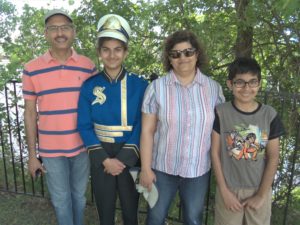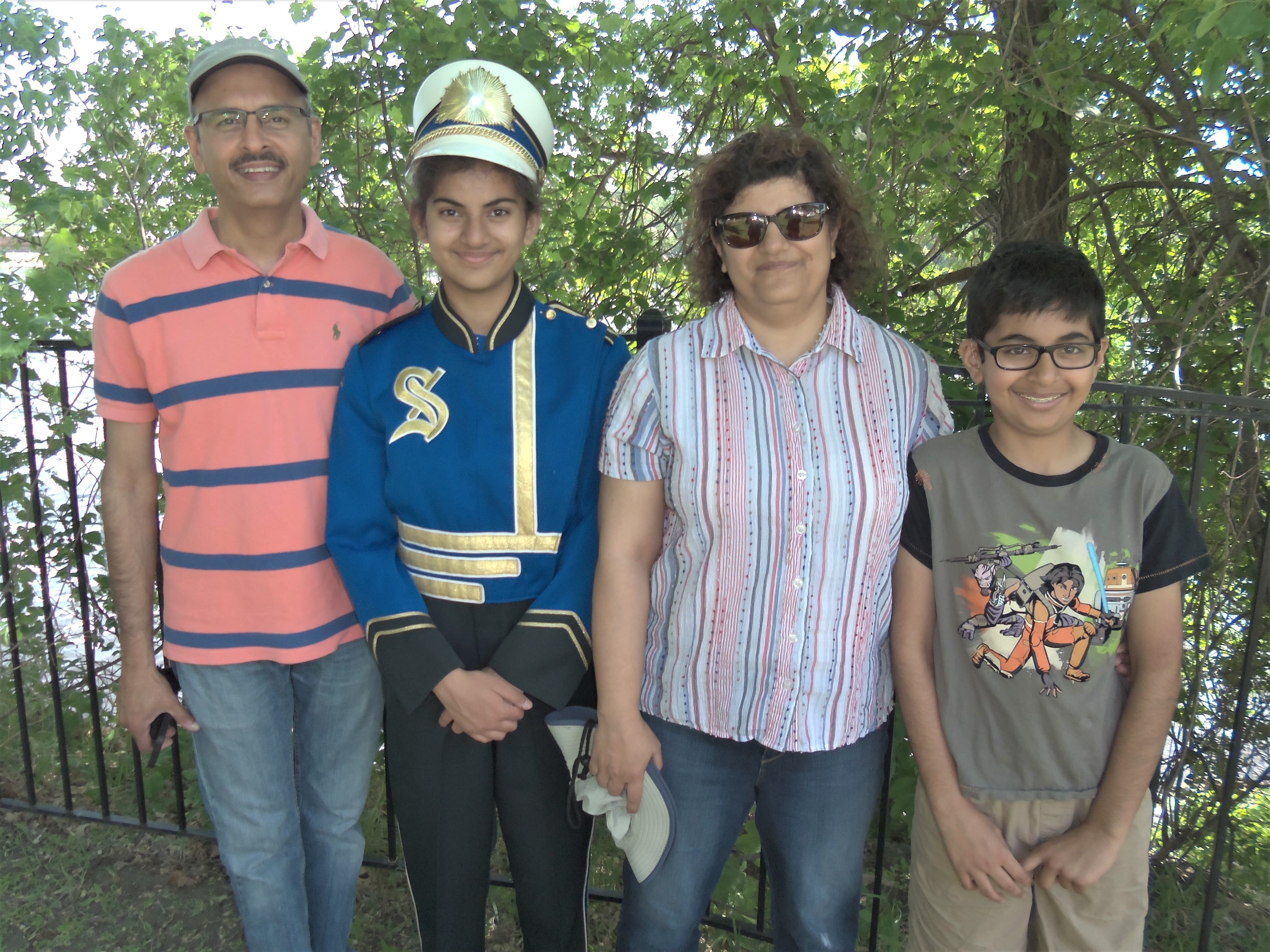by Dennis Dalman
Shortly before June 15, Zurya Anjum of Sartell went to Sam’s Club to buy $700-worth of dates.
No, Anjum is not addicted to dates. She’s going to buy so many of them because of Ramadan. The dates will be shared with many others at the men’s Muslim mosque in St. Cloud, part of the ritual of breaking the month-long fast called Ramadan. Later, others will spend another $1,000 for dates to distribute at the family mosque. The money Anjum and others use to buy the dates is raised by a local organization known as UniteCloud, which promotes kindness, understanding and ethnic and religious diversity in the central Minnesota area.
Like many Muslims in central Minnesota, Anjum, who is a psychiatrist at the VA Health Care System, and her husband, Dr. Shakeel Anjum, a doctor with CentraCare, have been fasting daily since May 16 and will continue to refrain from food and water 17 hours a day until the end of Ramadan, June 15.
Ramadan is the ninth month of the Islamic calendar and is dedicated to a prolonged fasting to honor the first revelation to the prophet Muhammed from the archangel Gabriel in a cave in 610 AD. The revelations as revealed to Muhammed comprise the first part of the “Quran,” which is the holy book of the Islamic religion.
During the Ramadan fast, Islamic adherents are not allowed to eat or consume liquids during an approximately 17-hour period daily from 3:30 a.m. to 8:45 p.m. However, before 3:30 a.m. Ramadan fasters can eat, and they can enjoy food after 8:45 p.m.
The reason for so many dates is that for centuries the end of the Ramadan fast was celebrated with the consumption of dates. The date, so common in the Middle East, is a “complete food” with nearly every nutrient the body needs for sustenance.
There is a deeper reason for fasting during Ramadan, Anjum explained. Fasting is supposed to result in a cleansing of the soul, a time of spiritual intensity when Muslims are expected to show empathy and compassion for others through charitable works. The fasting process demands self-control, sacrifice and kindness, which leads to a renewed appreciation for others less fortunate.
Fasting is not required for Muslims who are children, people suffering from disabilities or illnesses, and women who are pregnant or breast-feeding.
The Anjums’ two young children, Summbla and Yazaan, do not participate in the fasting process.
Ramadan, Anjum noted, is based on the lunar calendar (not the Western Gregorian calendar). For that reason, the month changes every year by 10 days. Next year, for example, Ramadan will start 10 days earlier, on May 6 rather than this year’s May 16.
Zurya said many acquaintances have asked her: “Why do you fast so long?”
She tells them it is a way for disciplining oneself, a way to understand the plight of those who do not have food. The fast makes participants more charitable and compassionate, she said.
“I look forward to Ramadan,” she said.
She and her husband were born and grew up in Pakistan and so Ramadan was always a widespread cause for excitement. When they moved to the United States, it was a bit of a struggle to adapt to celebrating Ramadan in a new country because of time constraints, prayer schedules and so forth.
But they managed to adapt, just as they learned to adapt to Minnesota’s frigid winters. And now, the Anjum family is looking forward to June 15 when they and their friends can celebrate the end of Ramadan with the sharing of dates and good fellowship.

Drs. Shakeel and Zurya Anjum pause for a photo after the Sartell Memorial Day ceremony in Sartell May 28. Their two children are Summbla (second from left) and Yazaan. Summbla is a flute player with the Sartell High School Marching Band, which performed tunes at the Memorial Day observance.



